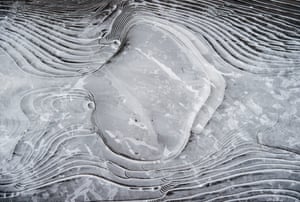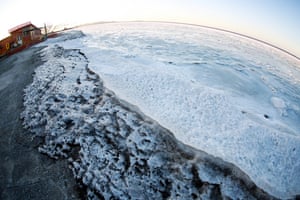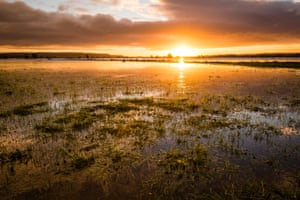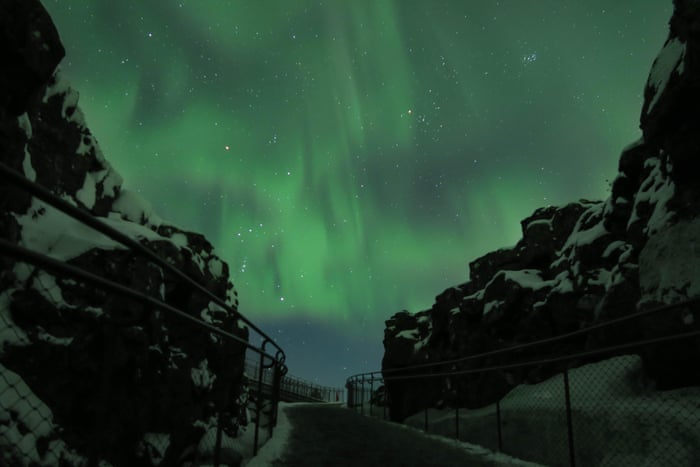Beautiful clouds form in Cape Town, South Africa. They are in fact lenticular clouds, according to CNN meteorologist Derek Van Dam. "These are fairly common clouds known as stratocumulus standing lenticularis," he wrote on Facebook. "They form when conditions are just right. Air flows along the surface of the earth and reaches some sort of obstruction like a mountain or valley."
Monday, January 18, 2016
unknown soldier
| picture from cnn |
Richard Drew captured this image of a man falling from the world trade center in New York after the terror attacks on Septemeber 11, 2001. This image went viral after many people were focred to jump, it is believed that an upwards of 200 people fell or jumped to their deaths after the planes hit the towers.
The fallen runner
Boston Globe photographer John Tlumacki was near the finish line when a 78 year old runner was knocked down by the first explosion a the Boston Marathon on April 15. These explosions left three people dead and estimated 264 wounded. To find more about this photographers experience click the link below
http://imagedeconstructed.com/post/spotlight-on-john-tlumacki
Mallnow, Germany

Ice patterns created by sub-zero temperatures are photographed on a frozen drainage channel.
Dalian, China

The frozen sea at Xiajiahezi bathing beach in the country's north-east Liaoning province.
The pride house

On June 27 the White House was lit up in rainbow colors in commemoration of the Supreme Court's ruling to legalize same-sex marriage.
A day to remember

Martin Luther King Jr. is waving to a crowd of over 250,000 people after giving his "I have a dream" speech on August 28, 1963. On this day we celebrate his birthday and all of his achievements as an influential American civil rights leader.
Thursday, January 14, 2016
under the sun
Photographer Gaby Barathieu had been wanting to take this photo for many years and visited the island Comoros’s Mayotte Island, known for its turtles.
 |
| picture from national geographic |
Tunnel View, Yosemite National Park
 |
| picture from national geographic The tunnel view is one of the most famous views of Yosemite valley. From this picture you can see El Capitan and Bridalveil Fall rising. |
Thursday, January 7, 2016
South Rim, Grand Canyon
 |
| picture from national geographic |
Photographing from the Desert View Watchtower, Wilkes made this image of the South Rim of the Grand Canyon in 27 hours. This vantage point allowed him to see the scale of the people along the overlook. “When the sun rose I had probably one of the greatest cloud formations you could ever ask for,” Wilkes says of photographing this image. “[It] was like a ‘dial-a-sky.’ I specifically went and shot this at the end of July, hoping to get the beginning and middle part of the thunderstorm season. We were very lucky at the end of the day to get a capture of a lightning bolt. “You can actually see the rain clouds building. That narrative—the ability to capture the changing of the cloud formations and the sky and how the day evolves that way—is a very profound thing in the parks. Because part of the magic of the parks is that no matter when you go, something really exciting can happen.”
Seronera National Park, Serengeti, Tanzania
 |
| picture from national geographic |
"There’s such a beautiful message in this photograph,” he says. “The animals essentially were starved for water, and they all shared. I watched them for 26 hours [as they] literally all [took] turns drinking, bathing in this single resource. And they never so much as even grunted at each other. You realize the animals really get it. And we have really yet to understand the idea of water [as] a shared resource.”
Wilkes and his assistant spent 30 hours perched on a platform 18 feet in the air, behind a crocodile blind so the animals wouldn’t see them. The elephant family marched across the frame just as he and his assistant had resumed shooting after taking a break to backup their files (each shoot takes about 20 gigabytes of storage). Had they passed five minutes earlier, he would have missed them.
Eduardo Ramos with his dead sheep, Puno, Peru, 1981
 |
| picture from national geographic |
This picture was taken by William Albert Allard in 1981 I was on assignment to photograph a National Geographic magazine story on Peru. "Late one afternoon while driving on a road in the altiplano near Puno, I came across a nine-year-old boy named Eduardo. He was obviously from a poor family, his clothes stitched and patched. And he was emotionally shattered, his anguished and wind-burnished face tearful. Just prior to my arrival Eduardo had been taking his family’s small band of sheep home for the night after grazing when a car racing down the road struck his sheep, killing half of them. They lay dead in a gully below like stuffed animals cast aside. What would he tell his family? Those sheep were their economy, but now half were gone. His face told the story."
Festival of Lights show
Brilliance in Black and White
 |
| picture from national geographic |
Photographer Ani Gypps captured this picture while on her honeymoon. . “We arrived late in the day,” she writes, “and the usual beautiful colors were not as visible within that light. But before leaving anywhere I always like to look back at the scene. That’s when I saw the light beautifully hitting the rising steam and highlighting the textures and patterns of the bacterial mats. This was the image I had to take.”
A Flurry of Activity
 |
| picture from national geographic |
“I was about to pack my gear as it suddenly started snowing—a lot,” Servoss writes. “I ran down to some fishermen working at the docks to get a few shots of them as they were lifting containers of fish from their boat to land … All of a sudden, I noticed hundreds of birds.” The birds appear to be playing in the snowflakes —though they are more likely attracted to the day’s catch."
lighthouse
 |
| picture from national geographic |
This beautiful picture was taken by Justin knott and also one of national Geographic's photos of the day. A working lighthouse since 1873, the 93-foot beacon is a landmark of the Oregon coast’s Yaquina Head Outstanding Natural Area.
Peaks of Enchantment
 |
| picture from national geographic |
“It had rained all morning, and just before reaching this spot the sun had broken through the clouds,” Joana Bochecha writes, “highlighting not only the vibrant green of the grass … but also creating a mist between the top of the mountains that gives a mystical appearance to this photo.”
Subscribe to:
Comments (Atom)




